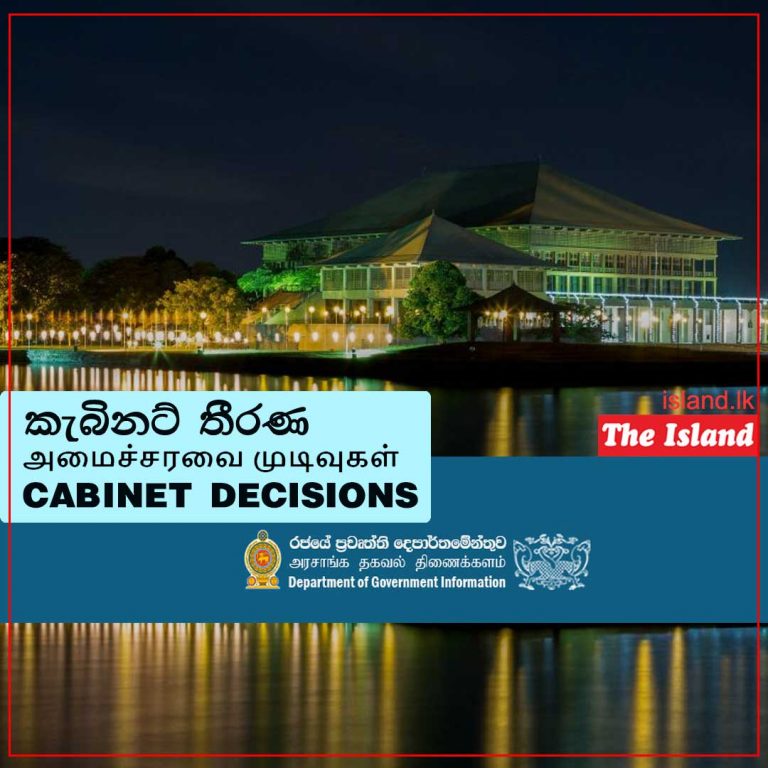News
Serious shortage of medicine due to foreign currency crisis

Pharmaceutical Industry contradicts Health Ministry
In spite of repeated government denials, severe restrictions have hampered the entire range of imports, including medicine. A few days after Health Ministry denied unavailability of medicines in the market, Sri Lanka Chamber of the Pharmaceutical Industry said that there was a shortage due to the deteriorating foreign currency crisis.
In a statement issued on Thursday (13), the outfit while declaring that it imported approximately 80 percent of medicine into the country said that the public raised two issues. They are; ‘will there be a scarcity of medicines in the near future in the country and if so, should they be stocking up their regular medications? and will the price of medicines go up in conjunction with all the other products in the market?’
The grouping warned the industry faced collapse as it couldn’t go on due to the continuing depreciation of Sri Lanka Rupee against the USD. It reminded the government that it was the only importer subjected to price control.
The following is the text of the statement issued by the apex body: “At least some sections of the public must be aware that there are shortages of some medicines even at present. This is due to many reasons but the foremost of these is the foreign currency crisis in the country which makes it difficult for banks to facilitate the payments through Letters of credit (LC’s). At present, banks, both state and private sector, allows the Pharma Importers to open LC’s only when they have sufficient dollars to safely guarantee payment for the imports. Although medicines are given certain priority, there are other items such as essential food items, Petroleum products, fertilizer etc., that have to be given priority as well by the Government. The result is that importing of medicines is now done on the availability of foreign currency and not on the needs of the country or its patients. In this situation, it is inevitable that there will be shortages of more and more medicines as the foreign exchange crisis deepens.
“As for stocking medicines in excess of usual treatment regime by patients, it is not advisable to do so for long periods since these products have to be stored under strict conditions specified by the manufacturers. It is doubtful whether such conditions can be maintained in an average household. In addition, bulk or panic buying by the affluent may deprive the less able segment of the population access to medicines they require for a healthy life.
“We as an industry will do our utmost to keep the supplies of medicines available uninterrupted, since we fully realize the implications of failing to do so. In this regard, we earnestly hope that the authorities concerned will give us priority in establishing LC’s on time.
“At the moment, medicines are the only commodity in the market that is under price control in Sri Lanka. This is making it nearly impossible for the companies to keep selling the medicines at the same price when the US Dollar continues to appreciate over time. On top of this, the global supply chain disruptions, increase in raw material costs and freight make it impossible to supply quality medicine as anyone would understand.
“It will be also catastrophic in the event if the dollar is allowed to float, which will mean that all medicines will have to be sold at a loss and as such, the entire industry will collapse in the face of such a threat where the importation would obviously stop as the cost of importation will be higher than the approved prices.
“There is no solution to this dilemma than removing the price control of medicines and implement a fair and equitable pricing mechanism which will link the price of medicines to the dollar, inflation and direct costs such as raw material, fuel and freight charges, which will make the importing and marketing of medicines viable. As difficult as it may sound, the authorities will have to choose between having medicines at a cost and not having medicines at all.
“We as an ethically responsible industry, have already sought the intervention of the courts in order to bring about a transparent pricing mechanism for Pharmaceuticals & Medical Devices that is fair to all. Such a mechanism may be the only salvation for the industry and the patients of the country and it is in the best interest of all concerned if the process is expedited by the authorities concerned by the government.
We would like to give a solemn undertaking to the public that we will do our utmost to see that the drug pricing is fair and equitable. The members of the SLCPI have an exceptional record of maintaining an uninterrupted supply of efficacious, safe & quality medicines at globally competitive prices over many decades while supporting the continuous medical education of the country.”
News
A new act for National Lotteries Board to be introduced

The National Lotteries board has been established subject to the Finance Act No. 11 of 1963. Having identified the requirement of amending that act which was imposed around 62 years to cater the current requirements of the lottery market, the Cabinet of Mnisters at their meeting held on 14.02.2017 granted approval to draft a new bill for the purpose.
Accordingly, the National Lotteries Board has recognized further amendments to be performed to the fundamental draft bill prepared by the Legal Draftsmen.
Therefore, the Cabinet of Ministers granted approval for the
resolution furnished by the President in his office as the Minister of Finance, Planning and Economic Development to direct the Legal Draftsmen to finalize the formulation of the draft bill for the National Lotteries Board as soon as possible including the proposed new amendments as well.
News
Motor Vehicles (Driving License Levy) Regulations No. 3 of 2022 to be amended

The Werahara office of the Department of Motor Traffic performs issuance of temporary driving licenses in this country based on the driving licenses issued overseas, and measures have been initiated to render the service from a service window of the Department of Motor Traffic established at the Bandaranayake International Airport from 03.08.2025.
The fees charged for issuing temporary driving licenses have been published in Motor Vehicles (Driving License Levy) Regulations No. 3 of 2022 prepared under the provisions of the Motor Traffic (Authority 203) Act.
But, as the fee of Rupees 2,000/- charged for the service is not sufficient, the requirement of amending the regulations has been recognized.
The regulations for introducing the revised fees have been published in the government extraordinary gazette
notification No. 2463/04 dated 17.11.2025. Therefore, the Cabinet of Ministers granted approval to the resolution furnished by the Minister of Transport, Highways and Urban Development to
submit the regulations to the Parliament for its concurrence.
Latest News
Mrs. P. K. L. S. Panduwawala appointed to the post of Surveyor General

The Cabinet of Ministers granted approval to the proposal forwarded by the Minister of Agriculture, Livestock, Lands and Irrigation to appoint Mrs. P. K. L. S. Panduwawala, the officer
in the special grade of Sri Lanka Surveyors’ Service currently serving as the Additional Surveyor General (Central) to the post of Surveyor General with effect from 02.02.2026.
-

 News11 hours ago
News11 hours agoBroad support emerges for Faiszer’s sweeping proposals on long- delayed divorce and personal law reforms
-

 News1 day ago
News1 day agoPrivate airline crew member nabbed with contraband gold
-

 News3 days ago
News3 days agoHealth Minister sends letter of demand for one billion rupees in damages
-

 Opinion5 days ago
Opinion5 days agoRemembering Douglas Devananda on New Year’s Day 2026
-

 News6 days ago
News6 days agoLeading the Nation’s Connectivity Recovery Amid Unprecedented Challenges
-

 Features1 day ago
Features1 day agoPharmaceuticals, deaths, and work ethics
-

 Latest News1 day ago
Latest News1 day agoCurran, bowlers lead Desert Vipers to maiden ILT20 title
-

 News1 day ago
News1 day agoPM lays foundation stone for seven-storey Sadaham Mandiraya









